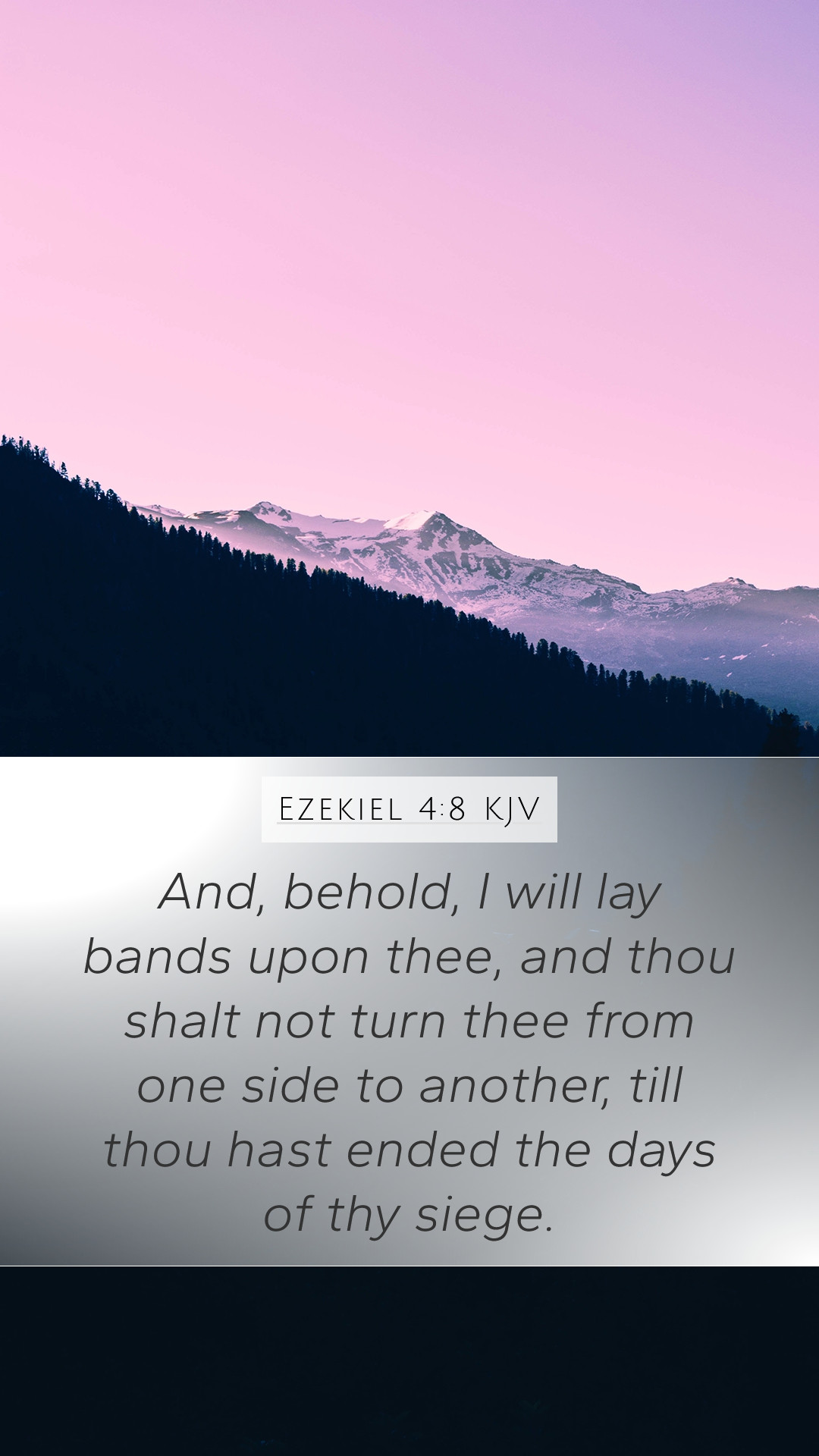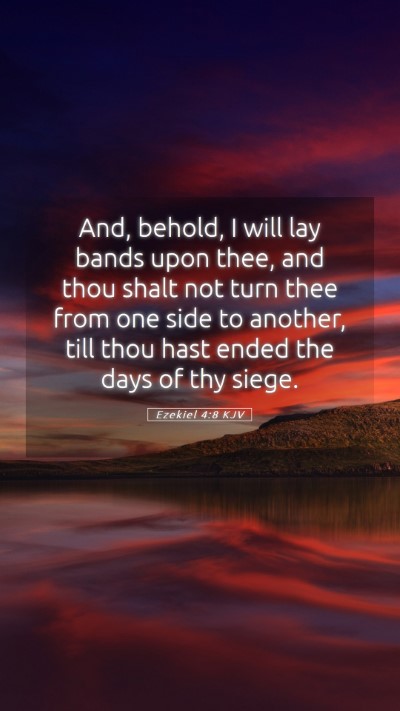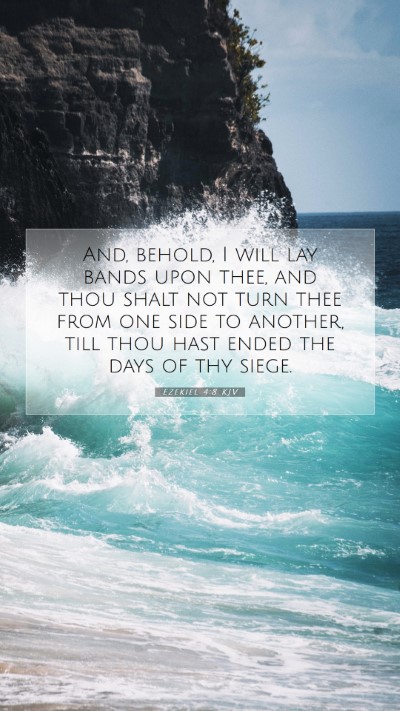Ezekiel 4:8 - Bible Verse Meaning and Commentary
Bible Verse: Ezekiel 4:8 - "And behold, I will lay bands upon thee, and thou shalt not turn thee from one side to another, till thou hast ended the days of thy siege."
Overview: This verse forms part of a prophetic act performed by Ezekiel, who is commanded by God to enact a series of symbolic actions to communicate His messages to the people of Israel. The significance of these actions, particularly the "bands" or ropes mentioned, serves as a vivid illustration of the restraint and hardships that would come upon the people due to their disobedience to God.
Analysis and Interpretations from Public Domain Commentaries
Matthew Henry's Commentary
Matthew Henry emphasizes that this command illustrates the severe judgment of God against Jerusalem for its sin. The bands signify the straits and difficulties that God would impose upon His people, restricting their freedoms as a consequence of their persistent rebellion. Henry elaborates on how the act of lying on one side develops into a deeper symbolic meaning, conveying the prolonged nature of the siege and the death brought upon the city due to sin.
Albert Barnes' Notes on the Bible
Albert Barnes highlights that the "bands" represent a divine proclamation of judgment that restricts Ezekiel's ability to move freely, mirroring the fate of Jerusalem. He notes that the symbolic representation aims to convey the message of a necessary and enduring consequence that the people must face until the completion of the siege. Furthermore, Barnes ties this verse to the concept of discipline and the necessity of experiencing consequences for sinful behavior.
Adam Clarke's Commentary
Adam Clarke interprets this verse as an indication of God's firm but just hand in punishing Israel. He analyses the significance of not being able to turn from one side to another, which symbolizes the confinement and the inescapable nature of divine judgment. Clarke also discusses how this verse acts as a reminder of the seriousness of God's expectations for His people and the weight of their accountability in the face of sin.
Key Themes and Lessons
- Divine Judgment: The bands represent the seriousness of God’s judgment against sin, highlighting the necessity of repentance.
- Symbolism and Signs: This enactment serves as a tangible sign of the impending siege, emphasizing the need for the people to recognize their wrongdoings.
- Discipline: The restriction imposed on Ezekiel is a metaphor for the discipline God imposes to bring His people back to obedience.
- Hope in Restoration: Despite the dire message, underlying tones suggest that there is still hope for restoration if the people choose to turn back to God.
Application of the Verse
This verse encourages individuals engaging with Scripture to consider how divine judgment and discipline can serve as calls to repentance in their own lives. By reflecting on this prophetic symbol, believers may gain insights into how their actions align with God’s commands and the ensuing consequences. Understanding Scripture in this context invites deeper self-examination and growth in faith.
Cross References
- Ezekiel 3:26-27: God’s command about restricting Ezekiel’s speech as a further symbol of judgment.
- Isaiah 20:2-4: A parallel symbolic act to demonstrate God’s judgment through prophetic actions.
- Lamentations 3:1-2: Reflection on the suffering and hardship due to turning away from God.
Conclusion
Understanding Ezekiel 4:8 within its historical context reveals much about divine discipline and accountability. Engaging with this verse through commentary allows for richer insights into God's character and the significance of remaining faithful. By analyzing this Scripture, individuals can enhance their Bible study lessons, deepening their understanding of both the Old Testament prophecy and its application in contemporary life.


